Interview: Frodus (w/ Shelby Cinca)
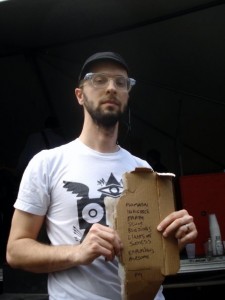 Frodus play a packed bill at the Talking Head Club tomorrow, Friday May 8 with Aural States’ friends Caverns, Solar Powered Sun Destroyer and Sick Weapons! Doors @ 8PM / $10. Be there.
Frodus play a packed bill at the Talking Head Club tomorrow, Friday May 8 with Aural States’ friends Caverns, Solar Powered Sun Destroyer and Sick Weapons! Doors @ 8PM / $10. Be there.
Audio clip: Adobe Flash Player (version 9 or above) is required to play this audio clip. Download the latest version here. You also need to have JavaScript enabled in your browser.
MP3: Frodus – Suspicion Breeds Confidence from Split 7″ with Trans-megetti(1996)
Audio clip: Adobe Flash Player (version 9 or above) is required to play this audio clip. Download the latest version here. You also need to have JavaScript enabled in your browser.
MP3: Frodus – Explosions from Explosions 7″ (1997)
Audio clip: Adobe Flash Player (version 9 or above) is required to play this audio clip. Download the latest version here. You also need to have JavaScript enabled in your browser.
MP3: Frodus – Lights On For Safety from Frodus/Roadside Monument Split (1997)
Audio clip: Adobe Flash Player (version 9 or above) is required to play this audio clip. Download the latest version here. You also need to have JavaScript enabled in your browser.
MP3: Frodus – Invisible Times Lines from Muddle Magazine Promo Flexi 7″ (1997)
Audio clip: Adobe Flash Player (version 9 or above) is required to play this audio clip. Download the latest version here. You also need to have JavaScript enabled in your browser.
MP3: Frodus – The Day Buildings Mysteriously Vanished from Conglomerate International (1998)
Audio clip: Adobe Flash Player (version 9 or above) is required to play this audio clip. Download the latest version here. You also need to have JavaScript enabled in your browser.
MP3: Frodus – There Will Be No More Scum (Alternate Version) from Songs From the Penalty Box 3 (1999)
Audio clip: Adobe Flash Player (version 9 or above) is required to play this audio clip. Download the latest version here. You also need to have JavaScript enabled in your browser.
MP3: Frodus – Disco from Split 7″ with Atomic Fireball (1999)
Audio clip: Adobe Flash Player (version 9 or above) is required to play this audio clip. Download the latest version here. You also need to have JavaScript enabled in your browser.
MP3: Frodus – The Earth Isn’t Humming from And We Washed Our Weapons In The Sea (2001)
The name Frodus (Wiki) may instantly ignite a cascade of warm fuzzies in the pleasure centers of your brain, or it may just ring hollowly, unrecognized. The DC-area post-hardcore stars burned quickly and melted down ca. 1999, leaving in their wake a massively acclaimed album (And We Washed Our Weapons In The Sea) to be released two years post-mortem on Fueled By Ramen, and finally bringing them deserved amounts of critical acclaim and an expanded fanbase…just a bit too late for them.
The wide variety of music loosely brought under the label post-hardcore has, over the past decade, dilated into a bloated and diffuse parody of itself. A regiment of clone artists took up post-hardcore’s tattered banner as they achieved mainstream success and a significant dilution in style in the mid-2000s, while the icons of the genre moved on to other sounds and styles, barely reaching the success of their forebears. Frodus is one of the genre’s most brilliant standard-bearers, formed amidst the wave of early 90′s post-hardcore artists and counting as peers greats like Refused, Glassjaw, Quicksand and Snapcase as well as established acts from the Dischord stable like Fugazi and Jawbox.
Thankfully, those who weren’t lucky enough to catch Frodus the first time around should find it a lot easier now that it seems they have reunited, amiably and permanently. A series of reunion shows promising to pick up right where they left off, showing the usurpers how things got done in the good old days, and a promise of new material that is hopefully only the beginning of a reclamation of the post-hardcore genre from mediocrity. I got the low-down from lead singer/guitarist Shelby Cinca (also of the Cassettes, Decahedron, Triobelisk, tons of other projects) about all things Frodus and Frodus Escape Plan (reunited).
Aural States: Let’s get a history lesson, crash course style. Way back when…how did it start?
Shelby Cinca: Well, it started in 1993. I was playing in this grunge band with some friends, we lost our drummer. The guitarist-singer for that band worked with Jason’s (drummer from Frodus) mom, and his mom was like “my son is a drummer.” Jason gave us a video tape through his mom of him playing without a shirt, in his room. We thought “this guy is ridiculous,” and we went to his house and jammed and it was cool. And then things started to get shaky with that band because the singer wanted to do something else. One day he left practice early, and Jason and I stayed and we wrote a Frodus song and thought “this is so much better, what do we do…” Thankfully, next practice the singer showed up and quit so we didn’t have to do anything!
So we continued as Frodus and booked a show at my high school. Total underground show through a fake school organization. We fliered everywhere in DC and something like 500 kids showed up. We were about to go on and a fire alarm goes off, so we didn’t get to play. But we still managed to record a tape of our set, we had 6 songs. We did that, and Frodus just kind of took us on a rollercoaster ride. We started putting stuff out ourselves, went through a few bassists, ended up on a label called Double Deuce in NYC who put out F-Letter. And then we got signed through some friends to Tooth & Nail, where we did Conglomerate International. They put a lot of press behind that. Then we did our last record, And We Washed Our Weapons In The Sea, and when we recorded that, that was a bad year. Jason’s girlfriend got cancer, my dad had a stroke that same week…we didn’t want to be on Tooth & Nail anymore because they were focusing more on their Christian artists and it wasn’t really in tune with what we were doing as a band. So we got off the label and we just broke up, and the record was lost in limbo.
We briefly signed to MIA Records, run by an oil tycoon who used to be an 80’s punk. But all of a sudden, the guy had to settle a lawsuit from some kid from a show this guy put on. The kid jumped and fell on his head at Butthole Surfers show in the 80′s that this guy put on. The kid paralyzed himself for the rest of his life. So they finally settled 20 years later and the label folded. That was the label that might have brought Frodus back together in 2000, 2001. They had a great budget, a whole floor in Manhattan. It was almost like being on a major, but it was an indie.
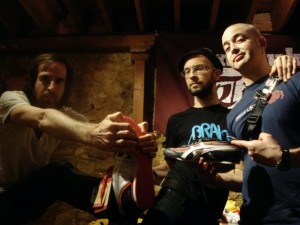 AS: When you guys just kind of dissolved, a lot of people who enc0unter difficulties retreat into their art. What made you guys go the other way?
AS: When you guys just kind of dissolved, a lot of people who enc0unter difficulties retreat into their art. What made you guys go the other way?
SC: We just stopped having fun. We always said that if we ever stop having fun anymore, we’d just stop. Our communication wasn’t the best…it was getting really bad. We weren’t seeing eye-to-eye on a lot of things. I was getting sick of playing hardcore shows. I wanted to play with weirder bands, and I felt like the hardcore crowd didn’t really care. We started having differences on where we wanted to go with the band. It felt like if we were gonna stay together, tour with At the Drive In in 2000, it would’ve crashed and burned into not being friends anymore. So we had to stop, to maintain friendship.
And now it’s all for the better.
AS: You guys broke up seemingly right before a huge groundswell of interest in new artists aligned with your philosophy and music, and the broader post-hardcore scene.
SC: Those first 6 years we were together, it was like we were too weird to be hardcore and too loud to be indie. A lot of the hardcore kids were like: “This is lame; I don’t like it.” And the indie kids thought it was too crazy. There was no middle ground until the younger generation came around and said “Oh this is awesome.” So yeah, I guess it was bad timing in that respect.
AS: Would you lump yourselves under the post-hardcore designation?
SC: Yeah, I guess so. It’s not hardcore, but it’s a progression. So I’d say so. But I always like to say it’s “post-office,” something you put on at home after a frustrating day of your job at the office.
AS: You mentioned you were kind of disenchanted with the hardcore scene. After you guys broke up, were you still interested in that approach to music?
SC: I went with the Cassettes. I had to do something else, completely different. It had to do some with there being less pressure. The first and second Cassettes records, kinda generic rock records, but they’re like healing records for me personally. It felt necessary to do, like I gotta stop screaming and nerd out on some 70′s and 80′s rock.
AS: The Cassettes sound is overall a lot warmer than the math-y sounds of Frodus.
SC: Yeah, although the last Cassettes record is pretty weird, Countach. It’s a lot more eclectic, a lot of theremin, some hard rock. Actually a lot like the early Frodus stuff we did. Almost like the Cassettes became what Frodus was in ’93.
AS: So it really was natural to fall back into Frodus.
SC: Yeah, sort of a big circle.
AS: So you essentially ignored the developments in the post-hardcore movement that you guys, in a way, predated.
SC: I didn’t really like a lot of the new bands, so I kind of stuck with the Dischord stuff. I always thought At the Drive-In, he always sang out of key and riffed a lot like Fugazi, so I thought I’ll just listen to Fugazi. They’re a better band. But I understood why people dug At The Drive-In, their energy and everything…seeing them live, I think they’re a much better live band than recorded, in the end.
I recorded the first two Dead Meadow records, which were more stoner rock heavy, but I started distancing myself from it more and more.
AS: It was odd to see the developments and proliferation of post-hardcore around that time, from something still pretty tight and focused on progression and agitation to something oddly mainstreamed…easily funneled into the Hot Topic stores.
SC: It became really commercial. Kind of the new hair metal, except the hair’s not permed and long but dramatic and swept over. It’s very similar ideas. The band members just want to party and meet chicks. It’s like the 80′s are happening again, but in a weird form now.
AS: So you also have your Triobelisk project as an outlet.
SC: Cassettes are kind of on hold now; they’re kind of like a band of gypsies, everyone has a lot of things going on. A 52-year-old theremin player, Saadat who’s a Ducati racing Pakistani dude, Stephen has a master’s degree in media, kind of a mad scientist type. Which makes it a very difficult band to market, and it’s amazing it even functions. How do we even manage to make any songs.
AS: But I think it’s a huge advantage for you to generate interesting sounds and appeal to a wider fan-base.
SC: It’s odd though because, you know, there’s very rarely Frodus crossover with the Cassettes. I guess people are like “Playing guitar and singing…he should be screaming.” I don’t know how we have to be presented for people to like it. I mean, when people see us, they like it. It worked really well locally, but I tried so many avenues with that band, to get it to stick tour-wise. So we decided let’s just be punk and be local and not care about trying to tour. And that was when Cassettes became the most successful, just organically.
AS: How did you get started with Triobelisk?
SC: I was playing around with 8-bit stuff, and trying to expand from it. It was really easy to do that stuff solitarily. I could get an idea out by myself, and feel like it sounds completed. I did a remix of “Sussudio” by Phil Collins that got some success and widely blogged, then picked up by some more prominent DJs and remixed.
So I kept making tracks, trying to figure out what kind of sound I was going for. Bringing out influences, even from Frodus like Kraftwerk, and making them more direct influences rather than indirect how Frodus was. And these synth dudes from the 70s with their long epics. Making all that more palatable, while still trying to take the listener somewhere else. And keeping a sense of music history, so it’s not completely like club bangers that might be forgotten. Even though it is club music, trying to make it have a little more longevity. Not just “YOU’RE GONNA GO CRAZY DURING THIS DANCE SONG.”
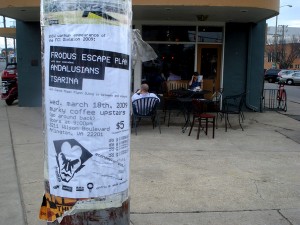 AS: So do each of your projects occupy different spaces in your head? Like, when you are writing Cassettes stuff you are in one region, Frodus stuff in another…
AS: So do each of your projects occupy different spaces in your head? Like, when you are writing Cassettes stuff you are in one region, Frodus stuff in another…
SC: Frodus, musically, is whatever interplay happens between Jason and I. We jam with other people, but you know, when he and I are in a room, we write Frodus songs. It just makes sense.
The Cassettes, on the other hand, I wrote and recorded parts at home and brought them to practice. Then we started building the sound organically, so it works sort of in the Frodus way by being the practice space and writing. But Cassettes move more like a weird, go-with-the-flow blob. Whereas Frodus, though it still moves like a blob, there’s a bit more of a focus on where the songs are going to go.
So, similar but totally different.
Triobelisk is like synthesizers, completely different. I use a whole different part of my brain to come up with that stuff.
AS: What about lyrically?
SC: Frodus now, probably a little more along the lines of Conglomerate International, moreso than introspective like Weapons. I think it’s time to be more confrontational.
AS: How did the reunion happen?
SC: House of Sweden, our friends in Division of Laura Lee were playing last October. The PA kept dying, so they got pissed and dropped their stuff and just left. So when things started coming back on, our friend Mike Fite said “Go play a song, go play a song.” So me, Jason, and Saadat from the Cassettes went on stage. I taught Saadat the bass line real quick and we did a really weird version of “Invisible Timelines.”
Divison of Laura Lee guys came up and said “what the f—.” They were really excited, because they hadn’t seen a Frodus thing since the 90′s. Then they kind of finished their set, shortened since the PA died. And we thought “wow that was fun.” Then flash-forward to February.
Lovitt was doing a showcase with our friend, old-school promoter Courtney. She started doing shows in Austin again and asked us. I didn’t know if we could do it. Things were kind of slow for me, and slow for Jason so we decided to just jam. And we thought “oh crap, this is pretty good.” Let’s get on the show. That was like 3 weeks before. We made some calls, Liam from Dillinger Escape Plan, was ready to do it. I knew him from doing the Ire Works album artwork; he was the idea guy, so we worked together on that. Ire Works, in a weird way, is a lot like Conglomerate. The concepts in it. Even the colors, the blue and the triangle and everything. I sort of put an abstraction of Conglomerate into that artwork, just more about artificial intelligence than corporations. Liam, he fit perfectly and we’d never even played with him.
AS: How did the SXSW showcase go? How was the reception?
SC: Oh it was great! The Murky show was awesome too. That whole show is online. I didn’t know what to expect. SXSW was cool. There was a stage, so the crowd couldn’t feel it as much? I didn’t like being on the big stage…but people were into it. I think I liked the Murky show, the energy, better. There was no stage, it was like karaoke. It was a little bit like that at SXSW, with some people jumping on stage grabbing the mic and singing.
But the Murky show…it was like we were a 90′s hardcore band. I didn’t even have to finish lines, the crowd would finish it. It was awesome. At the Murky show, I felt like…it’s more about the songs than us. Which made me even more excited that this is happening. That’s also why I chose Talking Head over Sonar; I want to have a kid be able to grab the bass mic, because Liam’s not doing backups, and just sing the backup vocals. I want every show to be like Frodus karoake. It’s not about us, it’s about these songs and that people are still psyched about them.
I want it to be a party more than it being us putting on a show.
Frodus (esc. plan) 3/18/09 – Part 1 from Michael D’Angelo on Vimeo.
AS: How do you feel everything fits in with current events?
SC: It’s one of the reasons we got back together. Specifically, Gilead is putting out Conglomerate International, that record is about corporate corruption. That just got re-released by Gilead, not Weapons. The banks failing.
I thought: “We have to do it. No matter what. This makes so much sense now.” I mean, we were saying back then, in 1993, “We are the economic police.” I don’t know if you heard that little PSA we did. So, because of these specific events and these specific records. If you think about it, people typically say Weapons was going to bring us back, but it turned out to be Conglomerate, which I think is cool.
AS: Do you have a defined view, how you would like things to change as far as politics and policies? Is there one central manifesto for Frodus?
SC: I think so. Less corporatism. America is so much behind the big corporation. I think Obama, to some extent, is trying to steer things away from that. Making sure there are more checks and balances, but it’s a situation we’ve gotten stuck in. It’s hard to pull the rug out and it’s such a big problem. You have to wean people to think differently. To think about smaller communities. Like in that book Omnivore’s Dilemma, thinking about your local area. Less about the American sense of self-entitlement, and more about actual community. Kind of what America used to be about at some level, back when immigrants first came to this country and formed small, focal communities, opening small businesses and shops. Somehow, things changed and became “I’m entitled to have my own big car and not ride a bus with people who are of a different social class than me.” But who cares about that? We should realize we are all in this together. So America is in this weird state where it’s says it’s coming together, but still trying to fulfill self-entitlement.
For example, recently I went to the American History Museum and every exhibit had a corporate sponsor. Like, the transportation exhibit was sponsored by GM. So when it says people switched from trolleys to buses, it talks about general dislike of the trolley system and says nothing about GM and Ford buying all the trolleys and shutting them down. Every video had the History Channel logo on it, and the Star-Spangled Banner flag is sponsored by Ralph Lauren. It has a logo on it. That’s so screwed up. A museum, you think would be a separate institution. It’s so America.
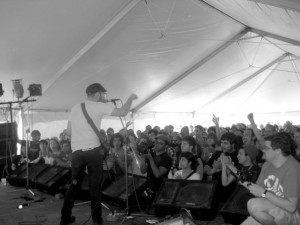 AS: Was all this motivation for your move to Sweden?
AS: Was all this motivation for your move to Sweden?
SC: Well there just aren’t enough jobs here, and my wife wanted to goto school…for free. My parents are in Romania. Sweden’s fun. I went there, stayed there for 5 months. I got grandfathered into the EU in 2007, but we came back here in 2006 and just decided to stick it out. But now, we’re married so it’s easy. We thought why not.
AS: Is the move permanent?
SC: Definitely permanent. We always talked about moving to New York if we could afford it. Maybe that’s on the horizon, but otherwise it’s pretty permanent. It shouldn’t affect Frodus immensely though, considering that we know a lot of people there, Jason’s already a traveler. He and I come up with some good parts and Liam can always rock a good bassline, so we can make stuff happen. We’ve done it long enough that the preparation time isn’t as long.
AS: Did you guys tour internationally before?
SC: Yeah, we went on tour with Refused for 5 weeks in 1998. It’s been a long time since we’ve been back and we definitely want to. Touring with Refused in Sweden made us like a household name for those in our generation. So, people who know Frodus in Sweden were people who went to the Refused shows, basically everyone over 30. If we went now, there would still be younger kids discovering it and a lot of older kids coming out. They definitely have a different history with Frodus than people here.
AS: How did you decide on your openers for your East Coast shows?
SC: We didn’t have anything to do with Philly, I think that was all Liam. But others it was just friends. The Baltimore one, Caverns are big Frodus fans, they’ve gotten to know us. Solar Powered Sun Destroyer has written us before. I want to give back the love, so those bands that really like us and were influenced by us get to play with us and everybody has a good time. The same with New York, Nakitomi Plaza, one of the singer’s first shows when he moved to NYC was us playing at the student union. People who were always there that just never got to play with us. It’s all about giving back the love.
AS: Are you guys debuting any new stuff on this mini-tour?
SC: No, we’ve got one new song but it doesn’t have vocals. We’ll just do Conglomerate and a couple Weapons songs. We’re pretty much picking up exactly where we left off. This is exactly the show you would’ve seen in ’99 basically. Same set lists, same repertoire.
AS: So what’s going to be different this time around?
SC: Well I think a lot of the crowd has never seen us. And I think we play a little bit better. It’s become a little phenomenon because we haven’t been around; there’s a lot of anticipation. The crowd never sang, jumped up and down, partied like that in the 90′s really. So that’s totally changed, how I even look at the shows.
AS: Do you have any new material in the works yet?
SC: We’ve only got the one song, and a couple of riffs so we’re just gonna record and see where it goes. We’re moving to Sweden end of June/early July, but that shouldn’t stop us. We’re just kind of a project that’s cruising, doing stuff as long as it’s fun.
AS: What are you guys planning for releases? Something by end of the year?
SC: I’d like to. We have this idea of calling it Frodus Sound Laboratories, an old name we used back in the day. It’s not necessarily a new Frodus record, just an experiment. There’s all these bands now that are pretty well known, Dillinger, Converge, who are friends. Some of the Refused guys. For the past 15 years, they’ve been saying we should do a project together and we should jam, but it never would have worked. And now is the opportunity to do it. See what happens, just have fun and not really think about a full-length.
Related posts
- Frodus – Conglomerate InternationalFrodus – Conglomerate International [Audio clip: view full post to...
- Photos / Live Review: Frodus, Sick Weapons, Caverns, Solar Powered Sun Destroyer @ the Talking Head (2009.05.08)Flickrshow will appear here. var frod = new flickrshow('frod', {set:'72157617920335796'});...
- Interview: Caverns (w/ Kevin Hilliard)Guitarist Kevin Hilliard, one-third of DC’s hard-rocking instrumentalists Caverns took...
- Interview: The Thermals (w/ Kathy Foster)The Thermals play DC’s the Black Cat Mainstage on Wed...
- Interview: Girl Talk (w/ Gregg Gillis)[Audio clip: view full post to listen] MP3: Girl Talk...





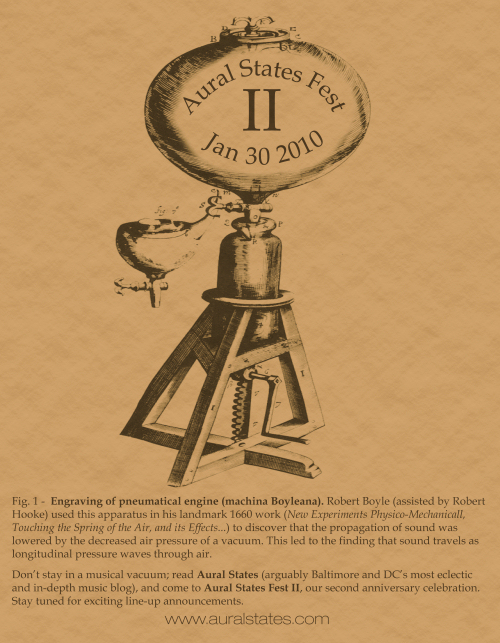











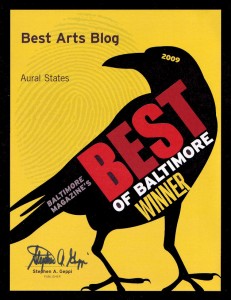


 Double Dagger: Masks EP
Double Dagger: Masks EP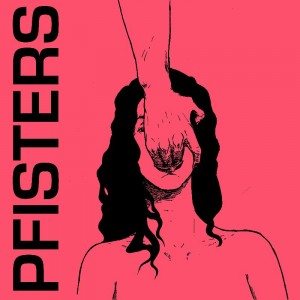 Pfisters: Narcicity
Pfisters: Narcicity Lizz King: All Songs Go To Heaven
Lizz King: All Songs Go To Heaven Imperial China: Phosphenes
Imperial China: Phosphenes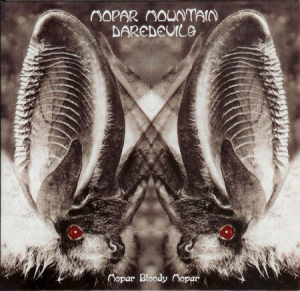 Mopar Mountain Daredevils: Mopar Bloody Mopar
Mopar Mountain Daredevils: Mopar Bloody Mopar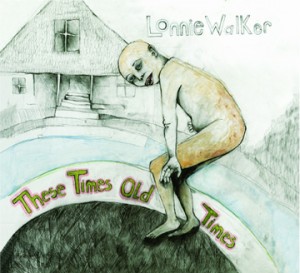 Lonnie Walker: These Times, Old Times
Lonnie Walker: These Times, Old Times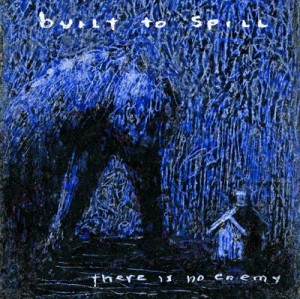 Built to Spill: There Is No Enemy
Built to Spill: There Is No Enemy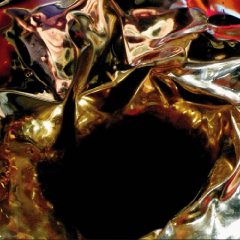 Hypnotic Brass Ensemble: Hypnotic Brass Ensemble
Hypnotic Brass Ensemble: Hypnotic Brass Ensemble Secret Mountains: Kaddish EP
Secret Mountains: Kaddish EP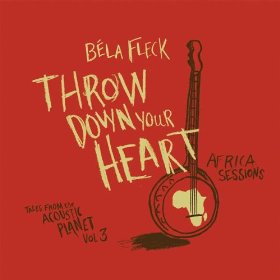 Bela Fleck: Throw Down Your Heart: Tales From the Acoustic Planet, Vol. 3 -Africa Sessions
Bela Fleck: Throw Down Your Heart: Tales From the Acoustic Planet, Vol. 3 -Africa Sessions Lands & Peoples: Lands & Peoples EP
Lands & Peoples: Lands & Peoples EP Caleb Stine: Eyes So Strong and Clean
Caleb Stine: Eyes So Strong and Clean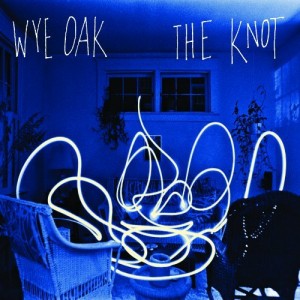 Wye Oak: The Knot
Wye Oak: The Knot Pontiak: Maker
Pontiak: Maker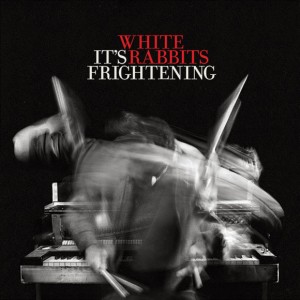 White Rabbits: It's Frightening
White Rabbits: It's Frightening Dirty Projectors: Bitte Orca
Dirty Projectors: Bitte Orca Double Dagger: More
Double Dagger: More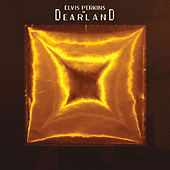 Elvis Perkins in Dearland: Elvis Perkins in Dearland
Elvis Perkins in Dearland: Elvis Perkins in Dearland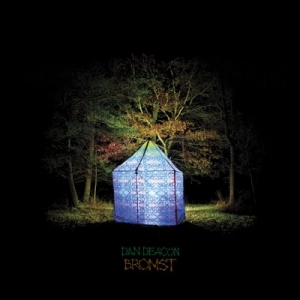 Dan Deacon: Bromst
Dan Deacon: Bromst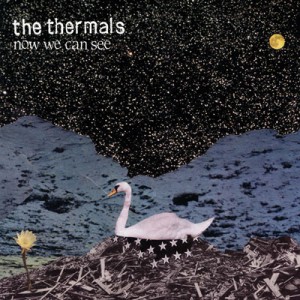 The Thermals: Now We Can See
The Thermals: Now We Can See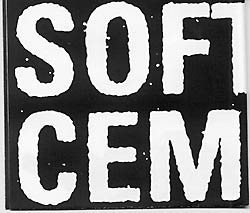 Soft Cement: Think About It EP
Soft Cement: Think About It EP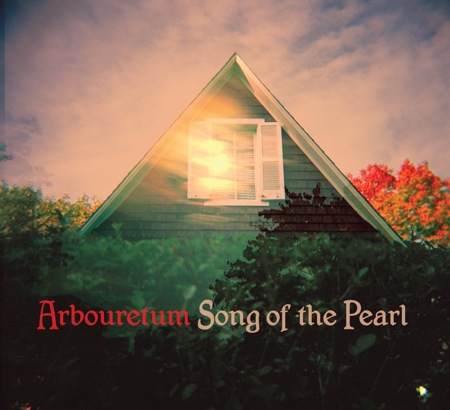 Arbouretum: Song of the Pearl
Arbouretum: Song of the Pearl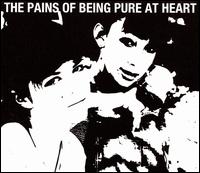 The Pains of Being Pure at Heart: The Pains of Being Pure at Heart
The Pains of Being Pure at Heart: The Pains of Being Pure at Heart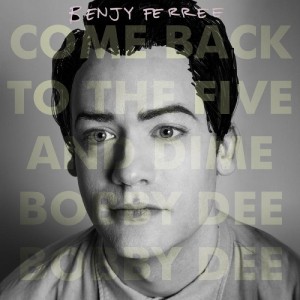 Benjy Ferree: Come Back to the Five and Dime, Bobby Dee Bobby Dee
Benjy Ferree: Come Back to the Five and Dime, Bobby Dee Bobby Dee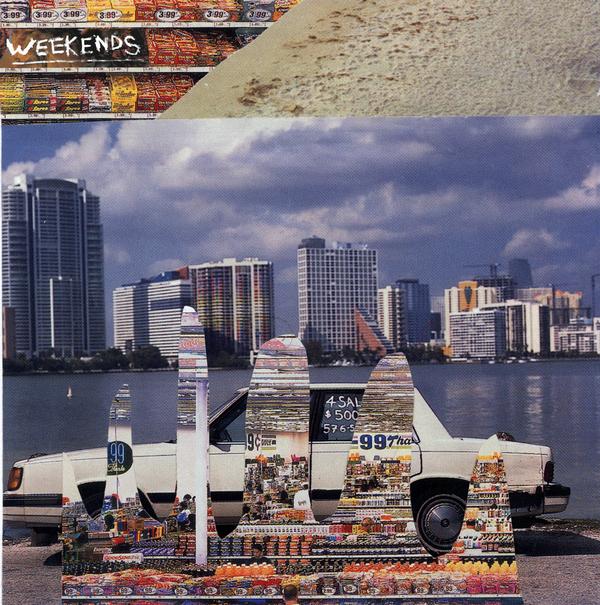 Weekends: Weekends
Weekends: Weekends Height With Friends: Baltimore Highlands 12" LP, Limited-Run Vinyl Only
Height With Friends: Baltimore Highlands 12" LP, Limited-Run Vinyl Only Caverns: Kittens! EP
Caverns: Kittens! EP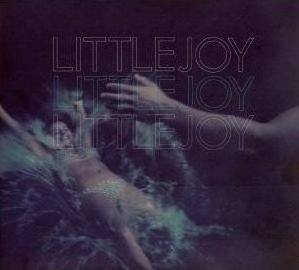 Little Joy: Little Joy
Little Joy: Little Joy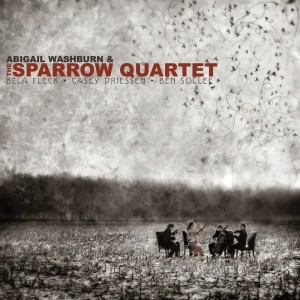 Abigail Washburn & the Sparrow Quartet:Abigail Washburn & the Sparrow Quartet
Abigail Washburn & the Sparrow Quartet:Abigail Washburn & the Sparrow Quartet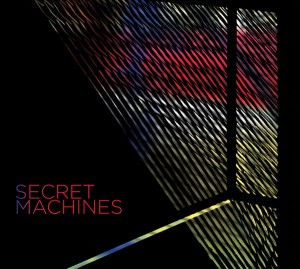 The Secret Machines: Secret Machines
The Secret Machines: Secret Machines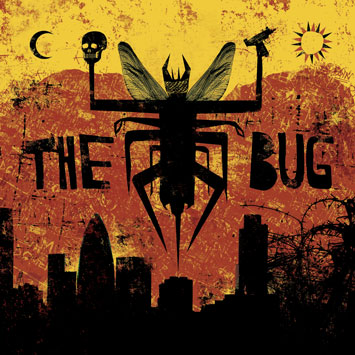 The Bug: LondonZoo
The Bug: LondonZoo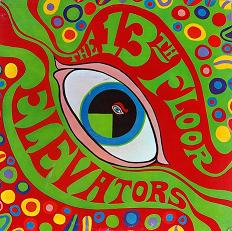 13th Floor Elevators: Psychedelic Sounds of the 13th Floor Elevators (Vinyl Mono LP only)
13th Floor Elevators: Psychedelic Sounds of the 13th Floor Elevators (Vinyl Mono LP only)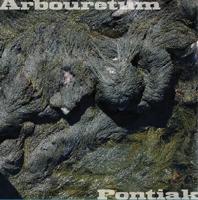 Arbouretum/Pontiak: Kale (Vinyl LP only)
Arbouretum/Pontiak: Kale (Vinyl LP only) Small Sur: We Live in Houses Made of Wood
Small Sur: We Live in Houses Made of Wood AbeVigoda: Skeleton
AbeVigoda: Skeleton ImperialChina: Methods: EP
ImperialChina: Methods: EP
[...] http://auralstates.com/2009/05/inter…lby-cinca.html No comments for this entry yet… [...]
Greg: are you going to this show?
i will definitely be there.
I love Frodus!
Check out these photos from the Philly show:
http://www.phrequency.com/blog/Frodus.html